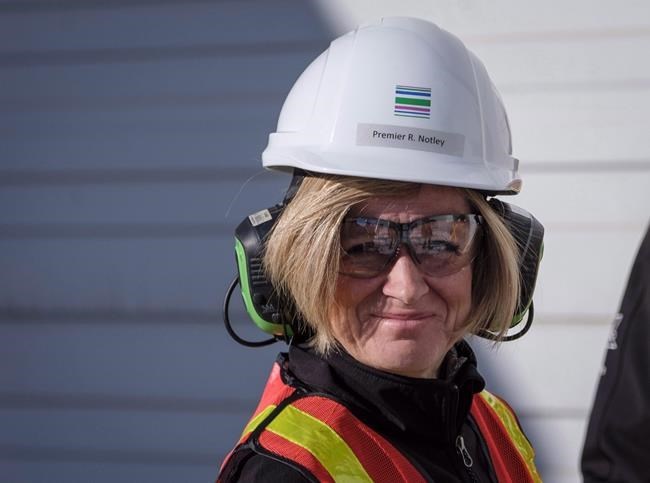 It’s not quite as simple as B.C. versus Alberta. It’s also people who put coastal environment issues first versus people who are OK with pipelines and tankers and the wealth they carry. People from both camps live on both sides of the border. The divide between those views is more important than the provincial citizenship measure.
It’s not quite as simple as B.C. versus Alberta. It’s also people who put coastal environment issues first versus people who are OK with pipelines and tankers and the wealth they carry. People from both camps live on both sides of the border. The divide between those views is more important than the provincial citizenship measure.
Alberta Premier Rachel Notley must have enjoyed highlighting the cross-border support she is getting after the oil/wine war started to take shape. She filled her Twitter feed this week with messages of support, all from British Columbians.
About three dozen B.C. residents’ supportive notes were quoted on Notley’s feed.
“I just wanted to let you know that I am in complete agreement with your stand against the B.C. government’s decision to delay the Trans Mountain pipeline. All the best to you as you push to get this pipeline built.” — Jeannette, Kelowna.
“Thank you for your service to Canadians.” — Claus, Fruitvale.
“I was born in B.C. and have always lived in our wonderful province. We all need fuel for our cars and need it to heat our homes. Keep up the fight.” — Brenda, Qualicum Beach.
“Go girl! You have to be tough!” — Bill, Summerland.
“As a resident of British Columbia, I would like to apologize for the behaviour of our government. I — as well as many others here — are on your side.” — Rainer, Comox.
“Many of our friends are for this pipeline. Five thousand people here in Nanaimo rely on Fort McMurray for their work.” — John and family, Nanaimo.
Of course, it goes both ways. There are Albertans with coastal concerns who might well be writing Premier John Horgan, as well. But it’s a safe bet there’s more support flowing east than west.
B.C. has endured the first week of the phoney war with an air of bemusement, more interested in jokes about Alberta’s new ban on B.C. wines. But an oil-industry man who spent time in Alberta trying to get the lay of the land summed it up: “The whole province is mad as hell.”
The intentions signalled by B.C. — and that’s all the government has done so far — push a hot button in Alberta that triggers ancient grievances. B.C. served notice it might put unilateral limits on increased shipments of diluted bitumen while it studies environmental issues that Alberta says have already been canvassed.
It’s a finely tuned move that skirts around the legality issue. Eminent lawyer Tom Berger, no stranger to long studies of pipelines (see the Mackenzie Valley inquiry), was retained last year as a special adviser to Horgan on the issue, and likely helped devise the strategy that was unveiled last week.
It’s an adroit political move to create a legal delay without actually doing anything that obviously breaches jurisdictional law. All the fuss is about something that hasn’t happened yet.
If B.C. did limit volumes, things would get serious in a hurry. Alberta’s first moves have been interesting, but relatively inconsequential. Notley cancelled talks on electricity trading that weren’t going anywhere. The wine ban is survivable.
Alberta could turn up the volume in other areas, and the oilsands themselves would be a prime battleground. The estimate of 5,000 Nanaimo jobs linked to Fort McMurray from “John” is probably an exaggeration. But the industry estimates there are 738 B.C. firms supplying the oilsands. For all the disdain B.C. environmentalists have for the oilsands, tens of thousands of British Columbians make a living off their development.
The intramural NDP dispute started last year with an “agree to disagree” theme. It’s starting to look more personal and more openly hostile. Fights among friends are always more bitter than fights with opponents.
Just So You Know: After the Fort McMurray wildfire in 2016, the Red Cross assisted with the huge relief effort and collected addresses from many of the 88,000 evacuees who fled town and returned to their homes or relocated elsewhere with family and friends. Then it plotted them all on a map. It showed big clusters of people moved back to Newfoundland and Ontario, and thousands of people landed in B.C. That illustrates again the close personal links between people in the two currently conflicted provinces.



